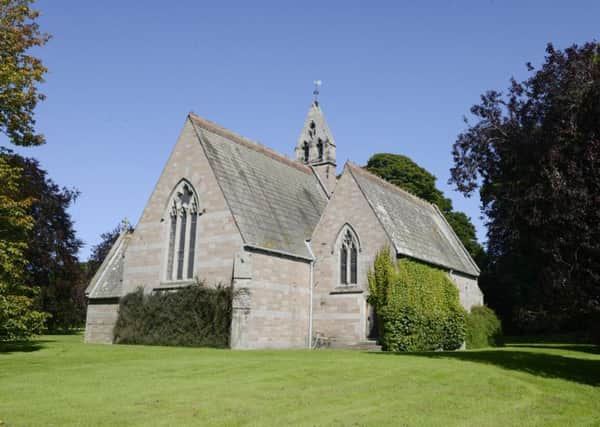Northumberland, History Society


He made excellent use of a diary kept by John Black, owned by a local person who was given it possibly by an owner of one of the farms linked to the family. We felt very envious, it must be every family historian’s dream to discover such a diary.
The story starts in 1769 with the building of a water-powered forge opposite Heatherslaw Mill near Etal. John Black, of Swinton, took ownership.
Advertisement
Hide AdAdvertisement
Hide AdStarting with little but 13 children, the blacksmith went on to become a successful farmer and businessman, even establishing a Baptist Church on the site in 1804. The Rev Alexander Kirkwood was Minister.
John’s children proved to be extremely enterprising. They took over several farms, including Grindon, Fenwick Steads, Kimmerston, Hay Farm, Etal Rhodes and Heaton. One son emigrated to New Zealand.
After John’s death son Thomas took over the mill and forge and established the renowned Black’s Spadeworks at Spittal in 1854, where Martin’s printers is now.
Marriages extended the Black ‘empire’. The Shorts of Etal Rhodes and Etal Barley Mill took over Waren Mill, which continues today as Silvery Tweed.
Advertisement
Hide AdAdvertisement
Hide AdIt was John Black, a son born in 1822 who married Mary Sanderson and settled at Ford Westfield, who wrote the diary.
The family suffered tragedy in 1870 when their two sons drowned in the Till at Linthaugh.
By 1900 the Blacks had given up the forge and mills, and the church had closed. The spadeworks at Spittal continued until 1953.
Agriculture was no longer flourishing and the financial situation was difficult. Sometime after 1911 George Black, who had inherited the businesses, moved to Dumfriesshire, severing the Blacks’ link with Ford of 150 years.
Advertisement
Hide AdAdvertisement
Hide AdReturning to the diary, extracts paint an interesting picture of life on a Northumbrian farm in mid-Victorian times.
We heard about an uncomfortable phaeton journey from Waren Mill to Ford Westfield in a gale, which took over four hours. There are references to marriages, births and deaths, weather reports and the state of markets. We heard about Isaac Milburn, bonesetter of Beal, who came to Ford when an accident required his assistance.
The diary provides an insight into the social history of the period with details of local hirings, including the engagement of the services of our speaker’s ancestor at Cornhill.
Ploughing Day was important. When someone took over a farm, neighbouring farmers would send ploughs and ploughmen to undertake ploughing for him. John Black records a day when 141 ploughs were sent when Thomas moved to New Heaton. No doubt a good dinner was given afterwards.
Advertisement
Hide AdAdvertisement
Hide AdThe Central Northumberland Railway, in which John took out shares, proved a pipedream when it did not materialise, although it would have been useful for farmers.
Weather records proved informative. John referred to the Till taking 12 to 15 hours to stop rising after rain.
Prices of commodities gave some surprise, with wool vastly surpassing what it would fetch today.
It was not all work and no play as we heard of Old Year’s Night in the mill, with 326 guests. Sadly, they seemed limited to weak tea for refreshment, which did not please John Black.
Advertisement
Hide AdAdvertisement
Hide AdIt is always good to hear the fine details of the life of our ancestors in a familiar part of the world and this talk proved an excellent example. David is fortunate to have access to this fascinating document and we thoroughly enjoyed his well-illustrated talk.
Our next meeting is on Saturday, January 20, at 10am, when we shall hear members’ stories on Tiny Tots. Memories of childhood, births and christenings will be welcome, as will a photo of yourself as a baby or tiny tot.